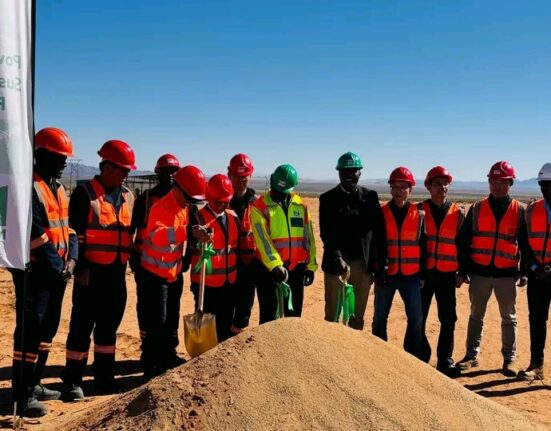Namibia, a young nation with a rich history of liberation struggle and national rebuilding, has emerged as a key player in regional peacekeeping efforts in Southern Africa. As a country that gained independence from apartheid South Africa in 1990, Namibia understands the fragility of peace and the importance of stability in fostering sustainable development. Its role in regional peacekeeping is a testament to its commitment to regional security and its desire to contribute to the peace and prosperity of Southern Africa and beyond.
The Evolution of Namibia’s Role in Regional Peacekeeping
After gaining independence in 1990, Namibia immediately positioned itself as a proponent of peace, stability, and democracy in Southern Africa. With its own history of conflict, the country was acutely aware of the dangers posed by instability and the consequences of unresolved conflicts. Namibia’s foreign policy was built on the foundation of promoting peace, human rights, and regional cooperation. This vision translated into active participation in regional peacekeeping efforts, often working with neighboring countries to address conflicts, manage peace processes, and support post-conflict recovery.
Namibia’s role in regional peacekeeping was greatly influenced by its membership in key regional and international organizations, including the Southern African Development Community (SADC), the African Union (AU), and the United Nations (UN). These memberships provided Namibia with the diplomatic tools to engage in peacekeeping and conflict resolution, both as a contributor to peace missions and as a mediator in regional conflicts.
Namibia and the Southern African Development Community (SADC)
The Southern African Development Community (SADC) is an important regional organization aimed at promoting peace, security, and economic development in Southern Africa. Namibia’s involvement with SADC has been instrumental in shaping its role in regional peacekeeping. As a member of SADC, Namibia has contributed to a number of peacekeeping missions and diplomatic efforts designed to stabilize the region and resolve conflicts.
One of the most notable contributions came during the SADC intervention in the Democratic Republic of Congo (DRC) in the late 1990s. The DRC, which had been plunged into a devastating civil war, was a source of concern for Southern Africa due to its strategic location and the potential for the conflict to spill over into neighboring countries. Namibia, alongside other SADC members such as Zimbabwe, Angola, and South Africa, provided military and logistical support to ensure the success of peacekeeping efforts aimed at restoring stability in the region.
Namibia’s contributions to peacekeeping operations within SADC have been primarily focused on diplomatic engagement, military support, and humanitarian aid. Its participation in peace missions is characterized by a strong commitment to multilateralism, ensuring that regional conflicts are managed collaboratively with neighboring states and international partners.
Namibia’s Participation in the United Nations Peacekeeping Missions
Namibia’s commitment to regional peacekeeping is also reflected in its participation in global peacekeeping initiatives through the United Nations. As a member of the UN, Namibia has supported peacekeeping missions in conflict zones beyond Southern Africa, contributing personnel, financial support, and diplomatic efforts to international peacekeeping operations.
In the early 1990s, Namibia sent its first peacekeepers to Mozambique to participate in the UN mission there. The mission, which aimed to help Mozambique transition from a devastating civil war to a peaceful, democratic society, was an important milestone for Namibia’s involvement in international peacekeeping. Namibian troops and military personnel worked alongside peacekeepers from other countries, providing vital support in the implementation of the peace accords.
Namibia’s role in UN peacekeeping missions was also visible in West Africa, where the country contributed to the United Nations Mission in Sierra Leone (UNAMSIL). The Namibian government sent troops to help maintain peace and security in Sierra Leone during its brutal civil war, which lasted from 1991 to 2002. Namibia’s military forces helped in disarmament, demobilization, and reintegration (DDR) efforts for former combatants, playing a vital role in restoring stability to the country.
Namibia’s participation in international peacekeeping is a reflection of its commitment to global peace and security, as well as its broader foreign policy goals of promoting human rights, democracy, and conflict resolution.
Namibia’s Peacekeeping Efforts in the Democratic Republic of Congo (DRC)
In addition to its contributions within SADC and the UN, Namibia has been actively involved in peacekeeping efforts in the Democratic Republic of Congo (DRC). The DRC, plagued by multiple wars and political instability, has long been a focal point of conflict in Central Africa. Namibia’s involvement in the DRC began in the late 1990s, when it joined other Southern African countries in responding to the outbreak of conflict.
Namibia was one of the key players in Operation Sovereign Legitimacy, a military intervention in the DRC that aimed to stabilize the country and prevent the war from spreading to neighboring states. The mission was part of the broader efforts by SADC to address the political and military chaos that engulfed the DRC following the fall of dictator Mobutu Sese Seko. Namibia contributed both soldiers and logistical support to the operation, which helped restore some measure of peace in the region.
The Namibian military’s participation in these operations reflected the country’s willingness to contribute to African-led solutions to regional conflicts. Namibia’s role in the DRC was an important part of the country’s broader commitment to supporting peace efforts in the region and preventing the spread of violence across national borders.
Regional Conflict Mediation: Namibia as a Diplomatic Actor
While Namibia has contributed troops to peacekeeping missions, the country has also taken on a vital diplomatic role in regional conflict resolution. As a nation that has emerged from a long struggle for independence, Namibia understands the importance of dialogue, negotiation, and reconciliation. The country’s leadership has often sought to mediate and resolve conflicts within Southern Africa by offering its diplomatic expertise and support to peace talks.
Namibia’s role as a mediator in regional conflicts was demonstrated in its involvement in the Angolan Peace Process. Namibia, under the leadership of President Sam Nujoma, helped facilitate peace talks between the Angolan government and the UNITA (National Union for the Total Independence of Angola) rebel movement in the 1990s. Namibia’s experience in negotiating peace and its proximity to Angola gave it a unique vantage point in mediating between the warring factions.
In addition to Angola, Namibia has played a key role in efforts to resolve the political and humanitarian crises in Zimbabwe. Namibia’s government, which has long maintained close relations with Zimbabwe, has advocated for a peaceful resolution to the political and economic challenges facing the country. Namibia has been vocal in supporting dialogue and negotiation between the Zimbabwean government and opposition parties, aiming to avoid further instability in the region.
Namibia’s Peacekeeping Contributions: Challenges and Future Prospects
Despite Namibia’s strong track record in regional peacekeeping, the country faces several challenges as it continues to contribute to peace and stability in Southern Africa. As the region faces emerging threats from armed groups, political instability, and environmental stress, Namibia must continue to adapt its peacekeeping strategies and maintain close collaboration with regional partners.
One of the major challenges Namibia faces in peacekeeping is the lack of resources. As a small country with limited military and financial capacity, Namibia must rely on international partners and regional organizations such as SADC and the African Union (AU) to support its peacekeeping efforts. The country’s defense budget is constrained, and its military capabilities are limited compared to larger regional powers.
Additionally, Namibia’s peacekeeping efforts are challenged by political complexities and shifting dynamics in Southern Africa. Conflicts in the region are often influenced by deeply rooted ethnic, political, and economic factors, making them difficult to resolve. Namibia’s approach to peacekeeping must therefore prioritize diplomacy and negotiation alongside military intervention, ensuring that the causes of conflict are addressed as part of the peace process.
Looking ahead, Namibia’s role in regional peacekeeping will likely continue to evolve. With growing regional challenges, particularly in the face of climate change, terrorism, and resource scarcity, Namibia will need to deepen its commitment to collaborative peacekeeping efforts and play an active role in conflict prevention, mediation, and post-conflict recovery.
Namibia’s role in regional peacekeeping efforts is a testament to its commitment to peace, security, and stability in Southern Africa. Through its participation in SADC, the African Union, and United Nations peace missions, Namibia has demonstrated its dedication to fostering regional cooperation, resolving conflicts, and promoting human rights and democracy. As the country continues to contribute to peacekeeping in Southern Africa, Namibia’s experience in conflict resolution, its commitment to diplomacy, and its growing defense capabilities will ensure its ongoing role as a key player in regional peace and security. The future of Namibia’s peacekeeping efforts lies in its ability to adapt to new regional challenges and to work with its neighbors to build a more peaceful and stable Southern Africa.
Join 'Namibia Today' WhatsApp Channel
Get the breaking news in Namibia — direct to your WhatsApp.
CLICK HERE TO JOIN












